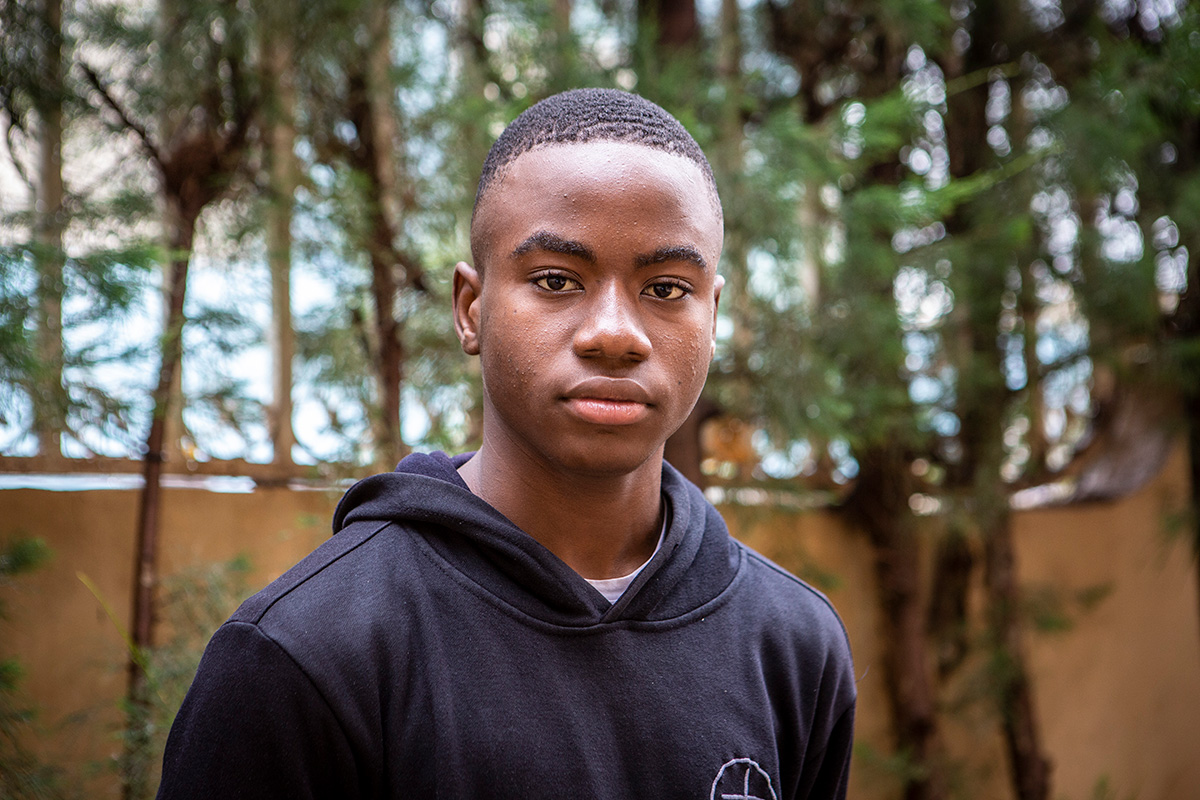
“An 8-year-old shouldn't have to see people die”
"I was traumatized by the war," Ambroise confided at the age of 13. Two years later, even if he expresses himself more fluidly, his words are identical. The feelings are still at their strongest; the mind has built itself around them, to tell (himself).
"I will tell you how I left Gao."
In 2012, the first fighting broke out in northern Mali, materializing long-standing tensions with the south of the country into a violent conflict that continues to this day. Ambroise lived amid the crisis, with his hometown on the verge of falling to insurgents.
"We wanted to take refuge with relatives in Bamako, but the first bus we took asked us to get off when they knew my father was a military. If we had been stopped on the way, all the passengers could have been killed," added Ambroise. The sum of 50,000 CFA for their ticket, which is more than the average salary in Mali, is not returned to them. Finally, "we found another vehicle. My father did not come with us. He couldn't leave the front. We then remained for months without news, thinking he was dead".
Until one day, when horns sounded, the family rushed outside. "It was him, in his old jalopy," Ambroise recalls with a laugh. Together they set off again for Mopti, a region that straddles the conflicting north and south. At the time, Search was training local children to become young radio journalists committed to promoting peace. Ambroise joined them. "I started to open up, to talk, without being afraid to reveal where I come from. Because usually when you say you're from the north, people fear you, they think we're all dangerous."
Today, Ambroise is back in Bamako, behind the microphone. Though the "Youth Talk" project, he continues his journey as a young journalist to tackle the socio-political issues of the country. Among the multitude of subjects, the conflict in the north remains at the center of his concerns.
"An 8-year-old should not have to see people die." Ambroise pauses. Memories seem to fill the place; he lifts his head, looks ahead. "We hosted a program about the conflict in Mali, but it was still too difficult for me to talk about my experience."
His heart still raw, his thoughts travel a thousand miles an hour, torn apart, between Gao and Bamako. "I told myself for too long that there was nothing I could do. Every time I heard about the number of displaced people, the number of deaths, I tortured myself, wondering how it could have been avoided." A feeling of helplessness that fades on air. His words have become his new weapons to make things happen. "Today, I feel like I'm doing something."
To those who still doubt, Ambroise asks, "It's too late for what? We may not reunite with those we have lost, but we can prevent more deaths."
Indeed, everyone is concerned, big or small, and taking action may mean starting to listen to the voices of young people and those involved in the conflict. "The people of the north have been neglected for too long. Through dialogue, by listening to them, by taking into account their opinions, we can build peace. And this can only be done through mediators, most of whom are young people."
When asked what his dream for the future is, Ambroise doesn't take a second to think about it. The words come out instantly, "a Mali without war," then silence, his eyes looking down as if to unravel something. "I want to help other young people traumatized by war to express themselves, to help others in turn, like an endless chain." Again these exact words, this same conviction, "we are the future of the country." Ambroise laughs, sending us back two years, "it's not the first time I say that." Nor the last.